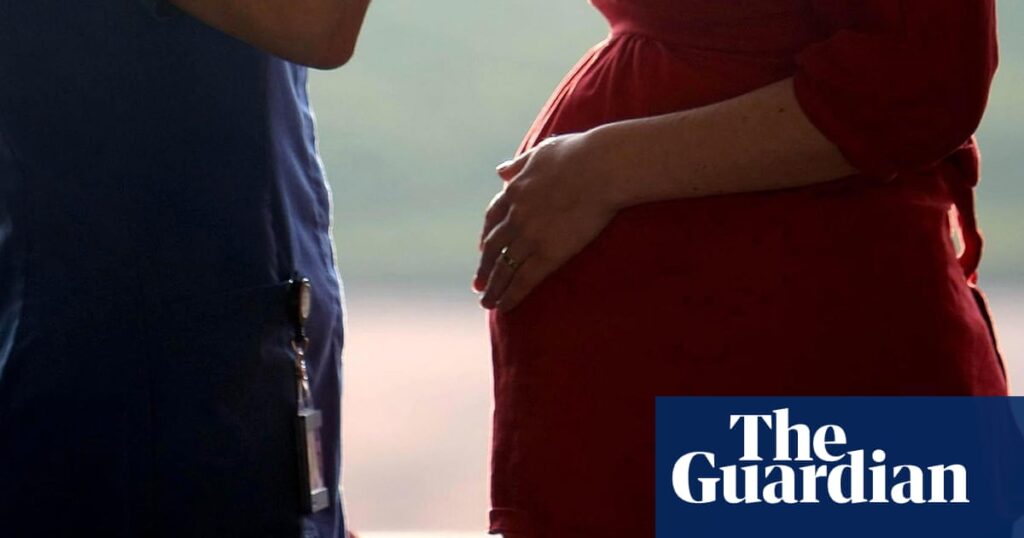The health secretary, Wes Streeting, has launched a national investigation into NHS maternity services in England, saying that “maternity units are failing, hospitals are failing, trusts are failing, regulators are failing” and there was “too much passing the buck”.
Speaking at the Royal College of Obstetricians and Gynaecologists’ (RCOG) annual conference on Monday, Streeting said the inquiry would urgently look at the 10 worst-performing services in the country, as well as the entire maternity system.
Streeting did not say how much the investigation would cost but that he expected it would be “somewhat less” than the “enormous” amount paid out by the NHS in clinical negligence claims.
Speaking to press after his keynote speech, he said: “There are some variables that we are still working out with families in terms of what the team looks like, what the terms of reference are and how it will work.
“I suspect it will be somewhat less than the enormous costs we pay in clinical negligence claims. Probably the most shocking statistic in this area is that we are paying out more in clinical negligence for maternity failures than we are spending on maternity services.”
The inquiry will look at factors contributing to failures in maternity safety, such as a lack of staff and specialised equipment across NHS trusts. It will also look at racial disparities within maternity care, such as the fact that black women are up to three times more likely to die during pregnancy or shortly after birth than their white counterparts.
The government also said on Monday that a national maternity and neonatal taskforce would be established, chaired by the health secretary and consisting of a panel of maternity experts and bereaved families.
The announcement of an independent review of maternity services across England had been looking increasingly likely after a series of high-profile failures in maternity care across several NHS trusts.
In February, Nottingham university hospitals NHS trust (NUH) was fined £1.6m after admitting it failed to provide safe care and treatment to three babies who died within months of one another.
The Ockenden review, published in 2022, investigated 1,862 maternity cases at Shrewsbury and Telford NHS trust, finding that hundreds of babies died or were seriously disabled because of its mistakes.
During his speech, Streeting apologised to the families affected. He said: “All of them have had to fight for the truth and justice. They describe being ignored, gaslit, lied to, manipulated and damaged further by the inability for a trust to simply be honest with them that something has gone wrong.”
Campaigners and medical organisations welcomed the national inquiry, but the government was urged to ensure that recommendations were fully implemented.
Anne Kavanagh, a specialist medical negligence solicitor at Irwin Mitchell who has represented many families affected by poor maternity care, said the inquiry must lead to “decisive action” by the government in order to restore confidence to the service.
“Sadly, many recommendations from previous reports and investigations have not been fully implemented, missing crucial opportunities to improve patient safety and learn from mistakes, which is the best way to improve healthcare,” Kavanagh said.
The RCOG said that, as it stood, “too many women and babies are not getting the safe, compassionate maternity care they deserve, with tragic outcomes that are devastating families”.
Quick Guide
Contact us about this story
Show
The best public interest journalism relies on first-hand accounts from people in the know.
If you have something to share on this subject you can contact us confidentially using the following methods.
Secure Messaging in the Guardian app
The Guardian app has a tool to send tips about stories. Messages are end to end encrypted and concealed within the routine activity that every Guardian mobile app performs. This prevents an observer from knowing that you are communicating with us at all, let alone what is being said.
If you don’t already have the Guardian app, download it (iOS/Android) and go to the menu. Select ‘Secure Messaging’.
SecureDrop, instant messengers, email, telephone and post
See our guide at theguardian.com/tips for alternative methods and the pros and cons of each.
Its president, Prof Ranee Thakar, said: “It is vital that the national review announced today is done quickly, builds on the evidence from previous maternity investigations and produces a definitive set of recommendations that galvanises action across the system.”
Sir Jim Mackey, the chief executive of NHS England, said: “Despite the hard work of staff, too many women are experiencing unacceptable maternity care, and families continue to be let down by the NHS when they need us most.
“This rapid national investigation must mark a line in the sand for maternity care, setting out one set of clear actions for NHS leaders to ensure high-quality care for all.
“Transparency will be key to understanding variation and fixing poor care. By shining a spotlight on the areas of greatest failure we can hold failing trusts to account.”


